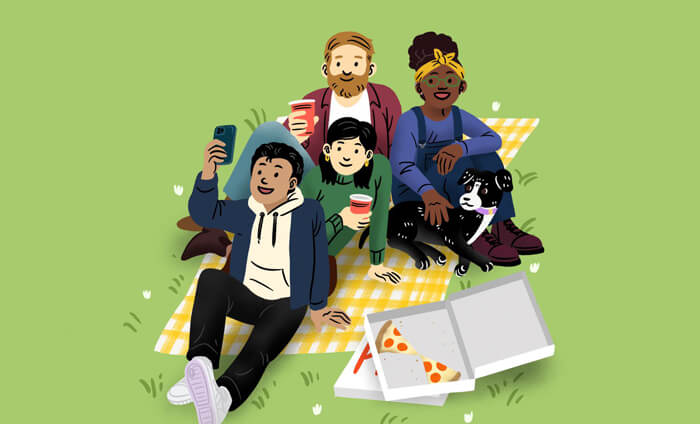Can You Have Multiple Best Friends?

Introduction
The concept of a "best friend" occupies a special place in our lives. They're the laughter in our tears, the secret keepers, the champions of our silly jokes. But what happens when your heart expands and you form deep connections with more than one person? Does the singular title of "best friend" suddenly become obsolete? This question has sparked endless debate, leaving many wondering: can you truly have multiple best friends?
Benefits of Having Multiple Best Friends
Diverse Support Systems
In times of joy and sorrow, having a network of friends provides varied perspectives and robust emotional support.
Shared Interests and Activities
Multiple friendships mean a myriad of interests and activities. From sports to intellectual pursuits, each friend contributes to a vibrant social life.
Arguments for Multiple Best Friends:
- Different connections: Each friendship fulfills unique needs and brings different joys. One best friend might be your intellectual sparring partner, always challenging your ideas. Another might be your partner in crime, ready for wild adventures. Having multiple best friends enriches your life with diverse experiences and perspectives.
- No exclusivity: True friendship celebrates other strong bonds. Just because you have another close friend doesn't diminish the depth of your connection with any one person. Sharing your triumphs and burdens across a wider circle can bring additional support and understanding.
- Changing dynamics: Life is fluid, and friendships evolve. Someone who was your childhood best friend might not be the person you confide in or share your deepest fears with as an adult. Having multiple anchors allows for personal growth and shifting needs.
Concerns about Multiple Best Friends:
- Dilution of intimacy: Some argue that dividing your emotional investment weakens the intensity of each friendship. Spreading your energy across multiple people might leave each bond feeling less special or unique.
- Commitment and complexity: Managing multiple close relationships requires time, effort, and emotional intelligence. Navigating potential jealousy, comparisons, or hurt feelings within the friend group can be an added challenge.
- Societal expectations: The idea of a single "best friend" remains deeply ingrained in popular culture. Deviating from this norm can lead to confusion or judgment from others, adding unnecessary pressure to the dynamics.
Ultimately, the answer lies within your own heart and the nature of your friendships. There's no one-size-fits-all solution. Some people flourish with one deep bond, while others find joy and support in a wider circle of close confidantes. What matters most is the authenticity and depth of your connections, not the label you attach to them.
Balancing Best Friendships and Other Relationships
Family Dynamics
Juggling family dynamics alongside multiple close friendships requires a delicate balance. Setting boundaries and fostering understanding is essential.
Romantic Relationships
The interplay between romantic relationships and friendships is nuanced. Understanding the dynamics is crucial for maintaining harmony in both spheres.
Here are some additional points to consider:
- Communication is key: Openly discuss your feelings and expectations with your friends. Set boundaries and ensure everyone feels valued and respected.
- Quality over quantity: Depth trumps numbers. Focus on the quality of your connections, not the number of people you call best friend.
- Embrace fluidity: Friendships, like life, are dynamic. Allow your relationships to evolve and adapt to your changing needs.
The bottom line is this: love and deep connection should not be bound by limits. Celebrate the richness of your friendships, whatever form they take.
Remember, the magic of human connection lies in its diversity and depth. Enjoy the unique bonds you share with each person, and allow your heart to bloom with multiple forms of friendship.
FAQs
-
Can having multiple best friends be overwhelming?
- While it can be challenging, proper communication and prioritization can help manage these relationships effectively.
-
How do you manage time between different best friends?
- Time management is key. Prioritize based on the needs of each friendship and be transparent about your commitments.
-
Do cultural differences affect the concept of multiple best friends?
- Yes, cultural perspectives on friendships vary, influencing how individuals navigate multiple close connections.
-
Is it normal to feel guilty about having multiple best friends?
- It's not uncommon, but understanding that each friendship is unique can help alleviate guilt.